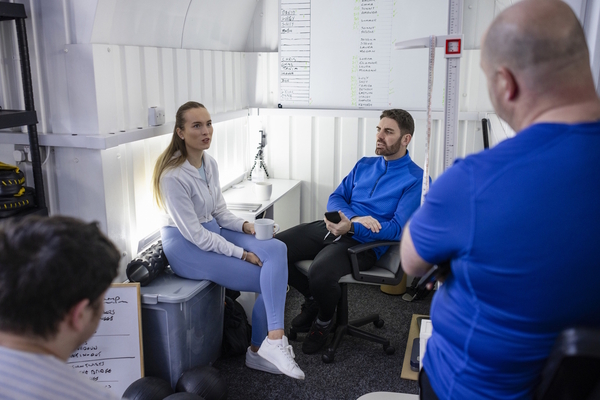The case for the workplace professional
Sponsored by IWFM
The story of Britain’s cycling renaissance is well known. Between the first modern Olympics, held in Athens in 1896, and the event in Sydney 104 years later, Great Britain won a solitary gold medal. The inaugural Tour de France took place in 1903, but it took Dave Brailsford arriving on the scene in 2002, bringing his philosophy of marginal gains with him, to eventually result in a Brit winning the yellow jersey for the first time in 2012. Simply put, Brailsford and his team broke down every component of a bike race, from the equipment and clothing to aerodynamics and maintenance, and set out to improve every little thing by one per cent.
The idea was that these tiny improvements would have a huge cumulative effect, and they did. Team GB topped the cycling medal table at Beijing 2008, London 2012 and Rio 2016. Bradley Wiggins then won the Tour de France in 2012 and British riders have won all but one race since. Many of the things Brailsford and his team improved weren’t the sort of issues that cyclists had traditionally thought about. They redesigned the bike seats to make them more comfortable and rubbed alcohol on tyres to achieve a better grip. They hired a doctor to teach cyclists the proper way to wash hands and avoided handshakes and high-fives altogether during competition. They even took personalised pillows and mattresses all the way across the world to make sure their riders got every possible advantage.
These are the sort of benefits organisations can get from improving even tangential things. In an era when profit margins are tighter than ever, when technology and consumers are evolving on an almost daily basis, why wouldn’t you make sure that facilities management, an integral part of your organisation, is contributing as much as possible?
Facilities management reflects the DNA of an organisation – it underpins the culture and is the foundation upon which organisational performance is built. Historically, the C-suite has underestimated the impact workplace and facilities management can have, and perhaps FMs have been too shy about promoting themselves and their profession. But the time has come for finance and HR directors, and everyone else clustered around the boardroom table, to seize the not-so-marginal gains facilities management is offering.
Research by Leesman has shown that only 54 per cent of workers in this country agree that their workplace enables them to work productively. This seems a massive oversight. The role of the facilities management team is to create amazing places for people to do amazing work, and supporting and enabling organisational performance through its people.
Dave Brailsford, or someone working for him, redesigned team buses to make them more conducive to recuperation. He painted floors and walls white, so it was easier to spot dust and dirt. This attention to the small details resulted in unprecedented success. Imagine applying it to the team which is responsible for the entire visitor journey, comfortable, performance-enabling work environments, health, safety and wellbeing and much more.
Workplace and facilities managers are responsible for the life-cycle management of an organisation’s buildings, and the overall performance of those buildings. The workplace environment they create and maintain is integral to attracting and retaining talent. It’s no secret that employees perform better when they are safe and comfortable, and when their surroundings reflect their values.
Given the results it produces, it’s no surprise that the philosophy of marginal gains has spread far beyond the cycling world. Healthcare systems embrace it as a way of eliminating mistakes and improving patient care; airlines as a way of improving safety and avoiding accidents. Naturally businesses have taken note.
From technology to sales techniques, there is no area of the modern workplace that isn’t analysed for areas to improve. Surely the time has come for the C-suite to turn to facilities managers and ask them how they can contribute to the organisation’s performance and bottom line.
The workplace is crying out for someone to act as the interface between people, place and process. A person who removes obstacles, fosters collaboration and oversees an environment in which peer-to-peer information sharing, collaboration and production can occur.
In the future the workplace will be a key differentiator, reflecting purpose, behaviours and values. The person responsible for all this will be ideally placed to serve as a bridge between HR, IT and CRE, representing the employee within the workplace ecosystem.
This is the natural progression for facilities managers in the years ahead, and it is time for boards across the UK to take real advantage of their contribution they bring.

Business Reporter Team
Most Viewed
Winston House, 3rd Floor, Units 306-309, 2-4 Dollis Park, London, N3 1HF
23-29 Hendon Lane, London, N3 1RT
020 8349 4363
© 2025, Lyonsdown Limited. Business Reporter® is a registered trademark of Lyonsdown Ltd. VAT registration number: 830519543





